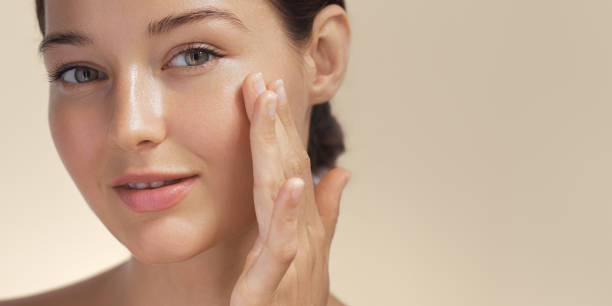Skin Fasting: The New Minimalist Approach to Skincare
In a world inundated with multi-step skincare routines and endless product options, a revolutionary concept is emerging that challenges everything we thought we knew about maintaining healthy, glowing skin. Skin fasting, a practice that involves temporarily abstaining from all skincare products, is gaining traction among beauty enthusiasts and dermatologists alike. This counterintuitive approach promises to reset the skin's natural functions, potentially leading to improved skin health and appearance. As consumers become increasingly overwhelmed by complex skincare regimens, skin fasting offers a refreshing alternative that aligns with the growing trend towards minimalism and self-sufficiency in personal care.

The modern iteration of skin fasting gained prominence in the early 2010s, popularized by Japanese beauty brands and holistic skincare advocates. The philosophy behind this practice suggests that by periodically abstaining from all skincare products, we allow our skin to recalibrate its natural processes, including oil production, cell turnover, and moisture retention.
The Science Behind Skin Fasting
While the concept of skin fasting might seem counterintuitive to those accustomed to rigorous skincare routines, there is scientific merit to this approach. The skin’s outermost layer, known as the stratum corneum, plays a crucial role in maintaining skin health by acting as a barrier against environmental stressors and regulating moisture levels.
Research has shown that over-cleansing or using too many products can disrupt the skin’s natural lipid barrier, leading to increased sensitivity, dryness, and even exacerbating conditions like acne. By temporarily eliminating all products, skin fasting allows the stratum corneum to rebuild and strengthen itself without interference.
Furthermore, the skin’s microbiome – the delicate ecosystem of beneficial bacteria on its surface – can be negatively impacted by excessive product use. Skin fasting may help restore the balance of this microbiome, potentially improving overall skin health and resilience.
Implementing a Skin Fasting Regimen
Adopting a skin fasting routine doesn’t necessarily mean completely abandoning all skincare products indefinitely. Instead, it typically involves strategically reducing or eliminating product use for specified periods. Common approaches include:
-
Weekly fasts: Abstaining from all products for one day each week.
-
Nighttime fasting: Skipping evening skincare routines a few times per week.
-
Extended fasts: Going product-free for several consecutive days or even weeks.
The duration and frequency of skin fasting can be tailored to individual needs and skin types. Those with particularly sensitive or acne-prone skin may benefit from shorter, more frequent fasts, while others might find longer periods of abstinence more effective.
Potential Benefits and Considerations
Proponents of skin fasting report a range of benefits, including:
-
Improved skin texture and clarity
-
Reduced oiliness and breakouts
-
Enhanced natural radiance
-
Increased skin resilience and ability to withstand environmental stressors
-
Simplified skincare routines and reduced product dependency
However, it’s important to note that skin fasting may not be suitable for everyone. Individuals with certain skin conditions or those using medicated topical treatments should consult with a dermatologist before embarking on a skin fasting regimen. Additionally, sun protection remains crucial even during fasting periods, so the use of non-comedogenic sunscreens may still be necessary.
Skin Fasting in the Context of Clean Beauty
The rise of skin fasting aligns with the broader clean beauty movement, which emphasizes minimalism and natural ingredients in skincare. As consumers become more aware of the potential negative impacts of certain synthetic ingredients and over-complicated routines, skin fasting offers a way to reconnect with the skin’s innate abilities.
This approach also dovetails with the growing interest in sustainable beauty practices. By reducing overall product consumption, skin fasting can contribute to a decrease in packaging waste and the environmental footprint associated with skincare production and distribution.
Expert Opinions and Clinical Observations
While large-scale clinical studies on skin fasting are limited, many dermatologists and skincare professionals have observed positive outcomes in patients who adopt this practice. Dr. Zoe Diana Draelos, a consulting professor of dermatology at Duke University, notes that “giving skin a break from products can help restore its natural balance and improve its ability to protect itself.”
Some experts suggest that skin fasting can be particularly beneficial for those struggling with product-induced irritation or experiencing diminishing returns from their current skincare routines. However, they emphasize the importance of a gradual approach, especially for those with sensitive skin or specific dermatological concerns.
The Future of Minimalist Skincare
As the beauty industry continues to evolve, skin fasting represents a significant shift towards a more holistic and intuitive approach to skincare. This trend is likely to influence product development, with brands potentially focusing on multi-functional, gentle formulations that complement rather than override the skin’s natural processes.
Moreover, the concept of skin fasting may expand beyond just product abstinence to include lifestyle factors that impact skin health. This could involve periods of reduced exposure to pollution, digital screens, or other environmental stressors that affect skin function.
In conclusion, skin fasting offers a compelling alternative to the maximal ist approach that has dominated the skincare industry in recent years. By challenging conventional wisdom and encouraging a deeper understanding of our skin’s innate capabilities, this practice has the potential to revolutionize how we approach skincare. As with any significant change in skincare routine, individuals should approach skin fasting thoughtfully, considering their unique skin needs and consulting with professionals when necessary. The growing interest in this minimalist approach suggests that we may be entering a new era of skincare – one that prioritizes skin health and function over product dependency.






